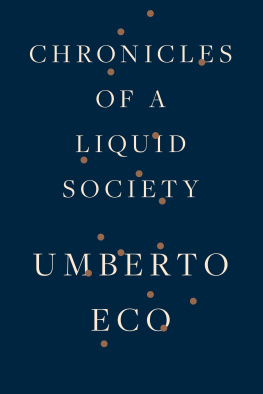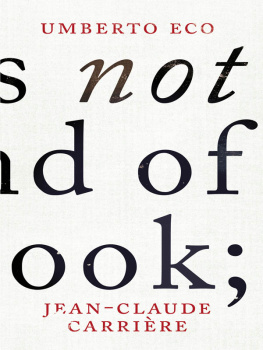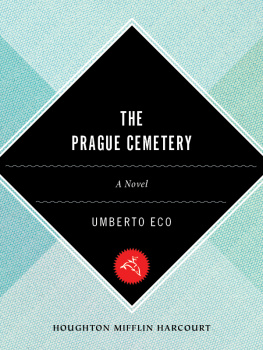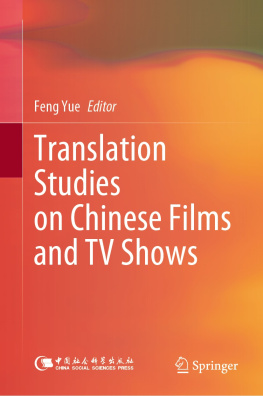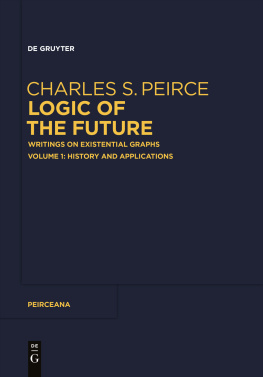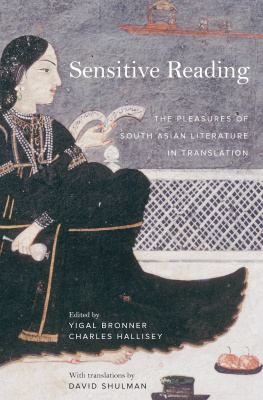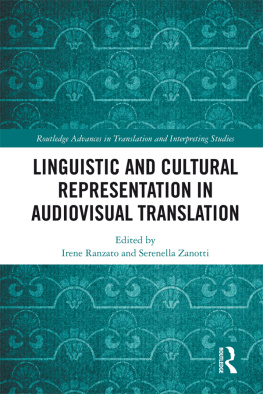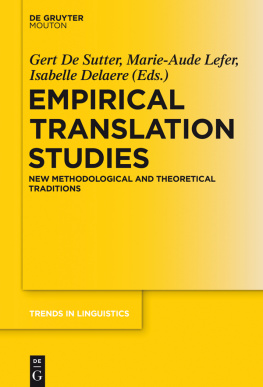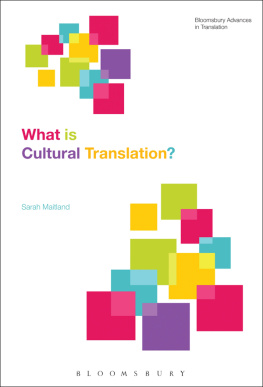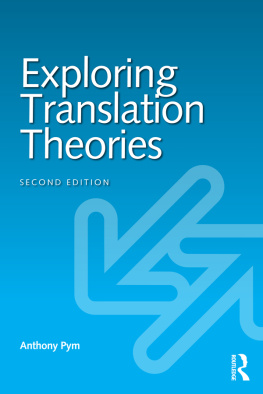MOUSE OR RAT?

Translation as Negotiation
UMBERTO ECO

Contents
In October 1988 I delivered a series of three Goggio Lectures on translation at Toronto University. At the same time, over a period of two years, I held seminars at the University of Bologna on the concept of intersemiotic translation, that is, the transformation of a novel into a film, or of a painting into a poem and so on.
In the course of those discussions I argued against the exaggeratedly indulgent idea of translation that charmed some of my students and colleagues. I therefore decided to examine more closely the idea of translation in the proper sense of the word, that is, the version from a text A in a verbal language Alpha into a text B in a verbal language Beta. Some of these reflections were presented at the Weidenfeld Lectures given at Oxford in 2002, and are published in this book in the form of essays.
As I said when opening my Goggio Lectures, I frequently feel irritated when I read essays on the theory of translation that, even though brilliant and perceptive, do not provide enough examples. If they are not as rich in quotations as Steiners After Babel, they are as bad as a book on dinosaurs that lacks any attempt to reconstruct the image of a dinosaur. I think that in addition to having made an intensive study of translations, of course, translation scholars should have had at least one of the following experiences during their life: translating, checking and editing translations, or being translated and working in close co-operation with their translators.
Active or passive experience in translation is not irrelevant for the formulation of theoretical reflections on the subject. In my Weidenfeld Lectures, therefore, my primary aim was to consider certain Naturally, in reconsidering those experiences, I shall not avoid theoretical considerations, but I repeat that my lectures did not represent a systematic approach to translation but rather a series of reflections on my particular experiences.
It must be clear that my subject matter is what Jakobson called translation proper (that is, from one natural language into another). Thus I shall always use the term translation in its proper sense, and when speaking of other kinds of so-called translation I shall put the term into inverted commas or I shall speak of intersemiotic translation or transmutation.
Irrespective of the fact that some philosophers or linguists have said that there are no rules for deciding whether one translation is better than another one, the everyday activity in a publishing house tells us that, at least in cases of blatant misunderstanding, it is easy to establish that a translation is wrong and deserves severe editing. Maybe it is only a question of common sense, but common sense must be respected.
In terms of common sense I ask you to imagine you have given a translator a printed manuscript in Italian (to be translated, let us say, into English), format A4, font Times Roman 12 point, 200 pages. If the translator brings you back, as an English equivalent of the source text, 400 pages in the same format, you are entitled to smell some form of misdemeanour. I believe one would be entitled to fire the translator before opening his or her product. If on the contrary we give a movie director the shortest novel ever written in the world, by Augusto Monterroso:
Cuando despert, el dinosaurio todavia estaba all.
(When he/she woke up, the dinosaur was still there.)
and the director brings us a tape two hours long, we do not have as yet any criterion to decide if the result is acceptable. We should first watch the tape in order to understand how the director has interpreted and adapted such an uncanny story through images.
Walt Disney translated Pinocchio into a movie. One can say that Disneys idea of Pinocchio was different from the one transmitted by the early artists who illustrated Collodis text, or that many elements of the story have been changed; but once Disney had obtained the serial rights (and moreover those of Pinocchio were free) nobody could charge him with unfaithfulness and authors who have sold the rights of their novels to Hollywood can at most quarrel with the director if they feel that the movie does not match their original intentions.
On the other hand, if I were a British publisher and asked for a new translation of Pinocchio, and the translator gave me back a text starting with Two households, both alike in dignity in fair Verona, I would have the right to refuse the translation. In translation proper there is an implicit law, that is, the ethical obligation to respect what the author has written. It has been said that translation is a disguised indirect discourse (The author so and so said in his/her language so and so). Obviously, to establish exactly what the author said is an interesting problem not only from a semantic point of view but also in terms of jurisprudence, as we shall see.
I dare to say (and I hope not to trouble some simple soul) that in order to define translation proper one must even take into account economic criteria. When I buy or look for a translation in a library that a great poet made of another great poet, I am not expecting something literally similar to the original; usually I look for a poetic translation because I already know the original and I want to see how the translator has challenged and emulated his source in his own language. When I watch the movie Un maledetto imbroglio by Pietro Germi, even though I know it is freely inspired by Gaddas Quer pasticciaccio brutto de via Merulana, I do not believe that, since I have seen the movie, I can avoid reading the book (unless I am particularly underdeveloped). I do presume to find in the movie many elements of the story, some psychological features of the characters, certain Roman atmospheres, but certainly none of the linguistic inventions that made Gadda famous.
If, on the other hand, I buy an Italian translation of David Copperfield I assume that at least in some way the translation will not only tell me the original story but will also be able to suggest by its style that the events and the dialogues take place in nineteenth-century London and not during the Roman Empire or in a sort of Star Trek universe. The following essays will try to establish what I mean by in some way.
Reading the translation of David Copperfield I would consider any cut as dishonest (I would call it censorship) and I would protest if I discovered that the translator made some characters say the contrary of what they said in Dickenss novel.
It is useless to object that these are mere commercial criteria or simple publishing conventions. Such legal and commercial criteria always hold even for artistic masterpieces. I would hazard a guess that when Michelangelo was asked to build the dome of St Peters it was understood both by the buyer and the artist that that dome not only had to be beautiful but also had to endure. The perfection of function is one of the requirements of an art work.
It seems that to respect what the author said means to remain faithful
It is not necessary to think of complex hermeneutic examples. Let us suppose that in a novel a character says, Youre just pulling my leg. To render such an idiom in Italian by stai solo tirandomi la gamba or tu stai menandomi per la gamba would be literally correct but misleading. In Italian one should say mi stai prendendo per il naso



